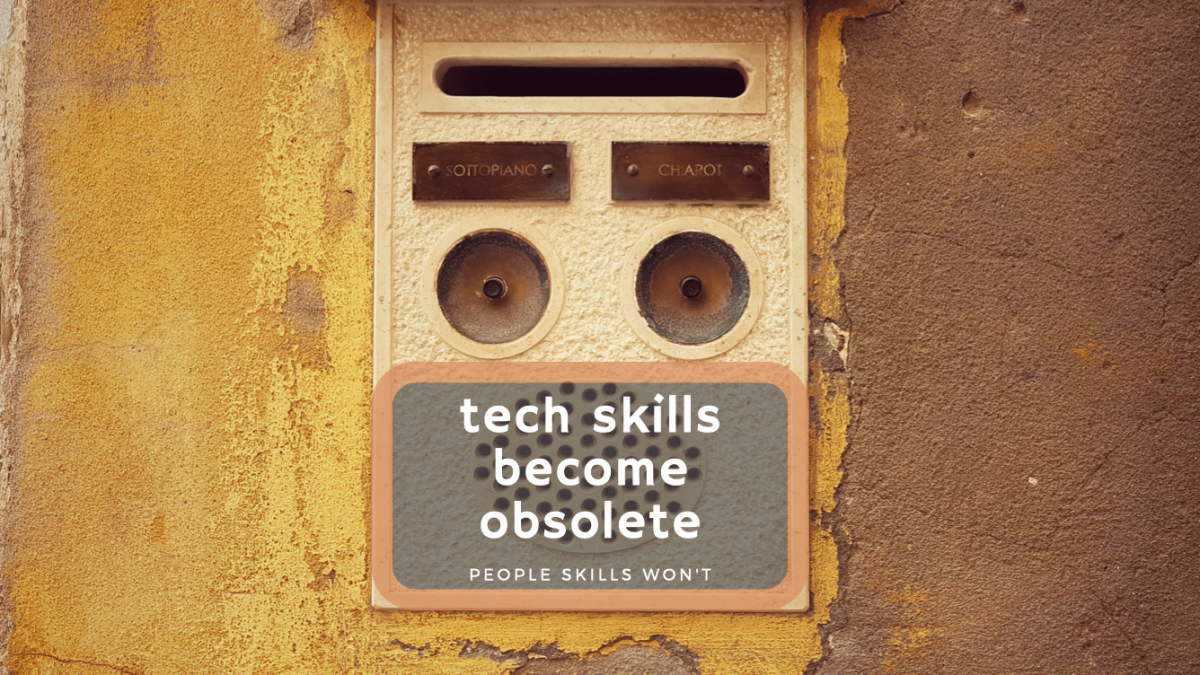Tech skills become obsolete with time, people skills won’t
12.11.2019

The main focus for IT consultants is often in technical skills. But does a software project often end up succeeding or failing based on the project members’ technical skills, or could there be a more important underlying issue affecting the outcome? Naturally, tech skills are essential in tech work. However, talking with software professionals you soon realize that the challenges in projects are often issues such as lack of communication, missing information and unrealistic expectations, which are not related to technical skills.
Behavioral skills are important in most workplaces but the importance is emphasized especially in consultancy work. Meeting new people, integrating into new working environments, and facing different situations happen all the time for consultants. Thus, good behavioral skills not only help consultants to be successful but are actually essential for the whole project’s success.

Self-knowledge and emotional intelligence
When talking about “People skills”, the emphasis is often focused on interaction between people. However, I believe that the foundation for behavioral skills is actually in self-knowledge. Self-knowledge is understanding how you behave and react in different situations: what I am like as an individual and a colleague?
Interaction is also a major part of teamwork. Empathy and emotional intelligence are capabilities which help in effective communication. They make it possible to understand others and enable you to choose suitable ways to express yourself, depending on who the audience is. Sometimes the best way to communicate and find understanding is just to listen. How good a listener are you?

Particular behavioural skills
Another communication skill to develop yourself in, is textual communication. Textual communication, like email and chats, take a lot of time during work days. Have you ever thought how effective your textual communication is? Are your messages clear, getting questions answered quickly, or are they unclear, creating a message overload?
Many people consider meetings to be a waste of time, without any useful impact. The reasons for unsuccessful meetings is often, however, in the people. Ask yourself, is your behaviour helping to achieve the goals of the meeting or are you part of the problem for the pointlessness of the meeting?
Negotiation skills are not only useful in meetings but also in other interaction. Knowing your strengths and weaknesses is part of becoming a good negotiator. Negotiation skills are also related to the ability to sell your ideas and influence others to agree with your suggestions. These skills are priceless for consultants, because a big part of the job is specifically trying to make the customer understand why your solutions/ideas would be beneficial for them.
Lastly, feedback should be a part of every organization and team. Giving and receiving feedback just tends to be challenging for many. This might be the reason why feedback is unfortunately not part of everyday work as it should be. Constructive feedback provides building blocks for everyone’s personal development, and its effectiveness can’t be underestimated.

To sum up
Behavioral skills are perhaps more important than one might think, even more important than tech skills, some might argue. Also, there are surprisingly many skills that can be qualified under behavioral skills. In my opinion, self-knowledge is the foundation for successful workplace interaction. Because of that, I believe it’s better to talk about behavioral skills, rather than communication or people skills.
Improving behavioral skills takes time and practice, but the learned skills will never become obsolete, which can and does happen with technical skills. Stay tuned for our followup blog post which will focus on concrete examples on how to develop your people/behavioural skills.




